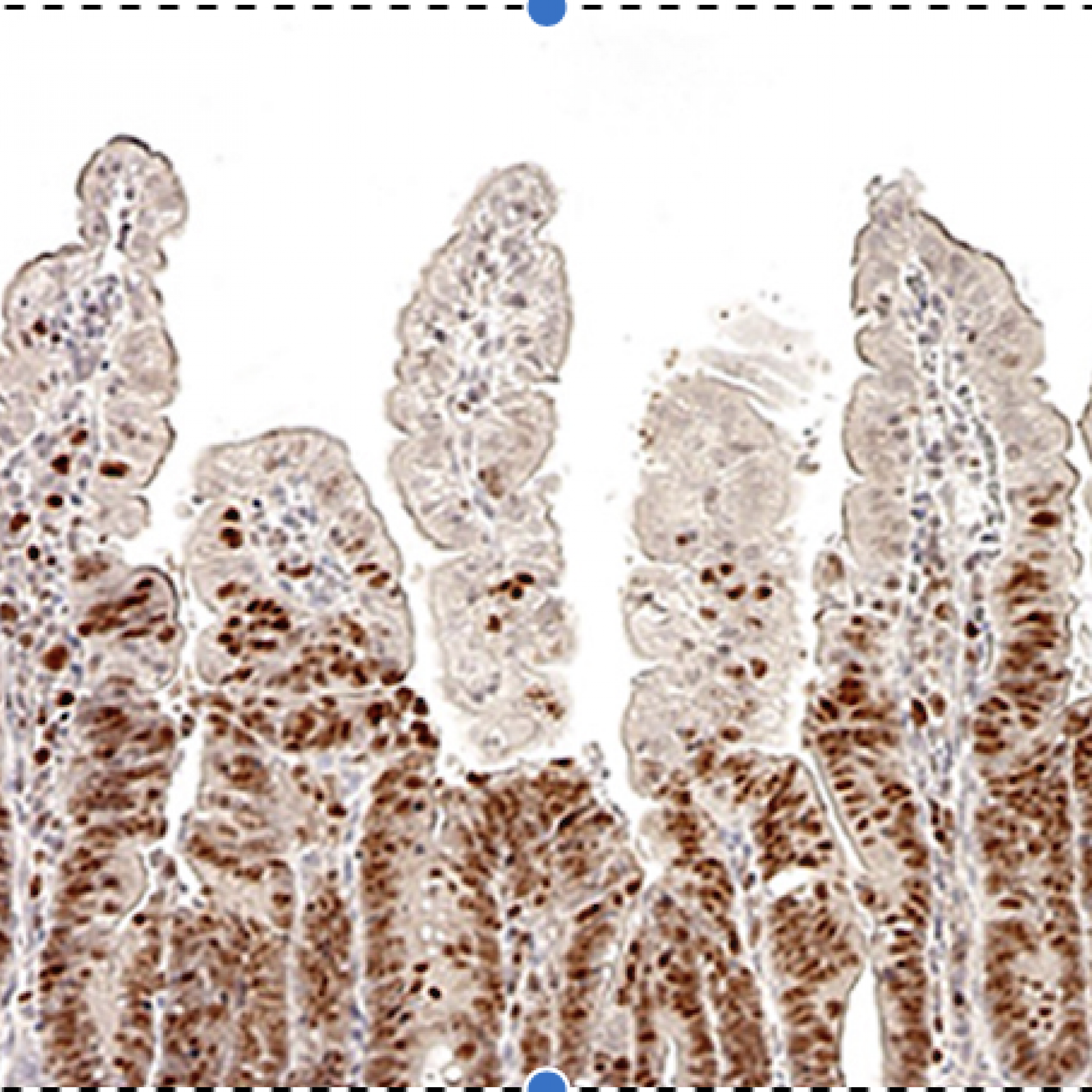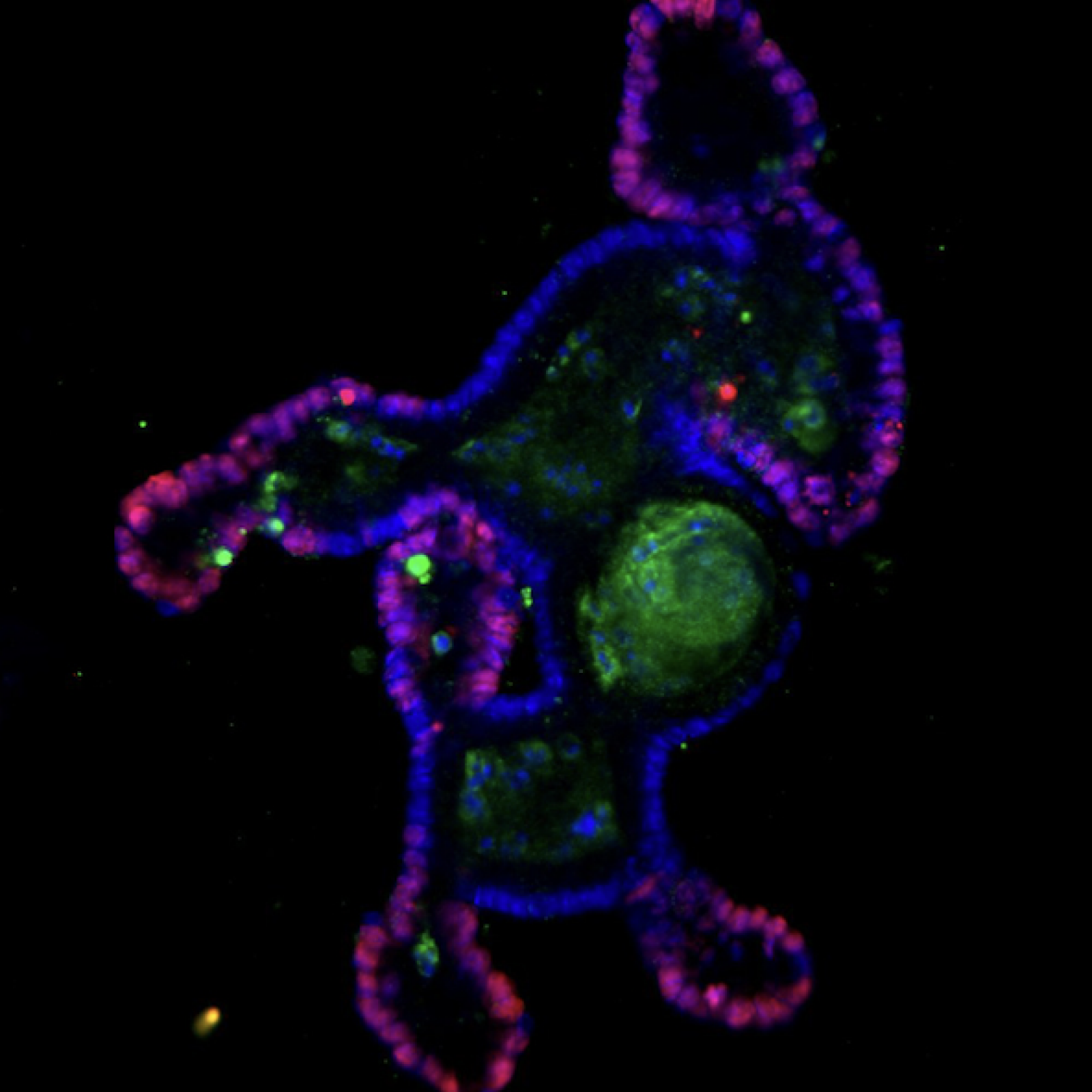Intestinal self-renewal and tumorigenesis
Leader(s)
The mechanisms underlying intestinal homeostasis are of fundamental biological importance and have critical implications for colorectal cancer. Our projects focus on the factors involved in the self-renewal of the intestinal epithelium and the mechanisms associated with intestinal carcinogenesis. For many years, we investigated the involvement of Wnt/b-catenin signaling as a major player in intestinal cell turnover and the emergence of colorectal cancer.
Our goal is to identify the factors involved in the maintenance and renewal of normal intestinal stem cells and understand the early changes associated with intestinal neoplasia to identify new markers of disease and new therapeutic targets. Our current projects are to continue and expand our research by studying the intrinsic factors expressed in intestinal stem cells as well as the microenvironmental factors involved in intestinal homeostasis and tumorigenesis.
We are currently studying with novel inducible mouse models the impact of diet, gut microbiota, host immune system on intestinal homeostasis and in Wnt-driven tumor development. From a translational research point of view, collaboration with the gastroenterology and digestive oncology departments of the Cochin University Hospital as well as the pathology department has been set up. This allows us to better understand clinical issues and develop fundamental biology research projects in line with clinicians' expectations.



















